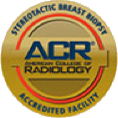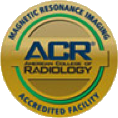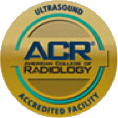
X-Ray Medical Group, Inc provides excellence and professional service in MRI (Magnetic resonance imaging) at our various locations throughout San Diego. The MRI uses a strong magnetic field rather than x-rays to provide remarkably clear and detailed pictures of internal organs and tissues. This modality is state of the art for imaging the brain and related vessels as well as disorders of the eyes and inner ears. It requires specialized equipment and expertise and allows evaluation of some body structures that may not be as visible with other imaging methods.
MRI is the most sensitive exam for brain tumors, strokes and certain chronic disorders of the nervous system such as multiple sclerosis. In addition, it is a useful means of documenting brain abnormalities in patients with dementia and it is commonly used for patients with disease of the pituitary gland. MRI can detect tiny areas of tissue abnormality in patients with disease in many parts of the body.
Because the strong magnetic field used for MRI will pull on any metal object implanted in the body, MRI staff will ask whether you have a prosthetic hip, heart pacemaker (or artificial heart valve), implanted port, infusion catheter (brand names Port-o-cath, infusaport, lifteport), intrauterine device (IUD) or any metal plates, pins, screws or surgical staples in your body.
You will be asked if you have ever had a bullet or shrapnel in your body or ever worked with metal. If there is any question of metal fragments, you may be asked to have an x-ray that will detect any such metal objects. Tooth fillings usually are not affected by the magnetic field, but they may distort images of the facial area or brain, so our Radiologists should be aware of them. The same is true of braces, which may make it hard to "tune" the MRI unit to your body. You will be asked to remove anything that might degrade MRI images of the head, including hairpins, jewelry, eyeglasses, hearing aids and any removable dental work.
Our radiologists or technologist may ask about drug allergies and whether head surgery has been done in the past. If you might be pregnant, this should be mentioned. Some patients who undergo MRI of the head in an enclosed unit may feel confined or claustrophobic. If you are not easily reassured, a sedative may be administered. Roughly one in 20 patients will require medication.







